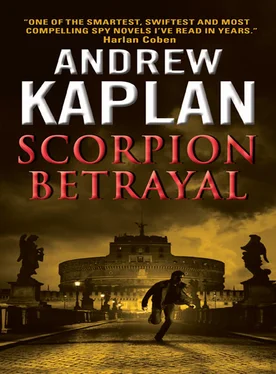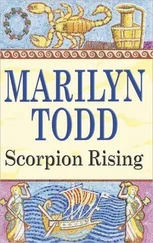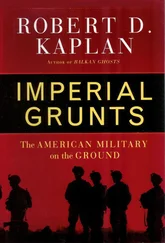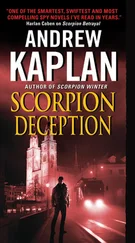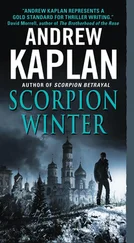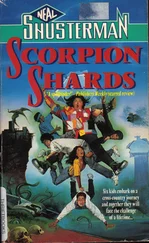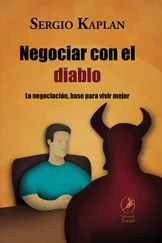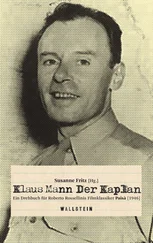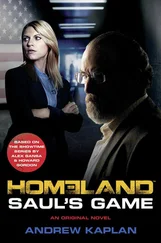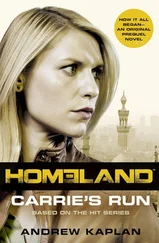Andrew Kaplan - Scorpion Betrayal
Здесь есть возможность читать онлайн «Andrew Kaplan - Scorpion Betrayal» весь текст электронной книги совершенно бесплатно (целиком полную версию без сокращений). В некоторых случаях можно слушать аудио, скачать через торрент в формате fb2 и присутствует краткое содержание. Жанр: Триллер, на английском языке. Описание произведения, (предисловие) а так же отзывы посетителей доступны на портале библиотеки ЛибКат.
- Название:Scorpion Betrayal
- Автор:
- Жанр:
- Год:неизвестен
- ISBN:нет данных
- Рейтинг книги:5 / 5. Голосов: 1
-
Избранное:Добавить в избранное
- Отзывы:
-
Ваша оценка:
- 100
- 1
- 2
- 3
- 4
- 5
Scorpion Betrayal: краткое содержание, описание и аннотация
Предлагаем к чтению аннотацию, описание, краткое содержание или предисловие (зависит от того, что написал сам автор книги «Scorpion Betrayal»). Если вы не нашли необходимую информацию о книге — напишите в комментариях, мы постараемся отыскать её.
Scorpion Betrayal — читать онлайн бесплатно полную книгу (весь текст) целиком
Ниже представлен текст книги, разбитый по страницам. Система сохранения места последней прочитанной страницы, позволяет с удобством читать онлайн бесплатно книгу «Scorpion Betrayal», без необходимости каждый раз заново искать на чём Вы остановились. Поставьте закладку, и сможете в любой момент перейти на страницу, на которой закончили чтение.
Интервал:
Закладка:
“A terrorist attack. My hands, shokran,” he says, holding his hands out. The vendor pours water over them and hands him a towel, which he uses to wipe some of the blood and dirt from his hands and face.
“You are hurt, hader?”
He shakes his head and washes again.
“Ilhamdulilah,” the vendor says. Thanks to God. “Is it the Brotherhood?”
“Who can say?” he replies, handing the vendor twenty Egyptian pounds and keeping the towel.
“Shokran, hader. May Allah be with you,” the vendor says.
“And you,” he replies, already moving. He turns the corner into a narrow lane and enters a small men’s clothing shop, light from the shop spilling into the street. The owner is of the Brotherhood and immediately motions him to the back, drawing a curtain to shield them from the street. He strips off his shirt and shoes, and the owner brings him a gallabiya and turban.
“How did it go?” the owner asks.
“Burn this,” he says, handing him the bloody towel.
“Your blood?”
He shakes his head.
“Good,” the owner says, and throws the bloody towel into a metal bin. “The airports are closed. How will you get out of the city?”
He stares at the man. “Did I say I was leaving the city?”
“No, of course not,” the owner stammers. “ Lo tismah. Let me assist you with that,” he says, coming over to help smooth the gallabiya.
He touches the back of the owner’s head almost gently, then forces it down and slides the crook of his left arm under the man’s neck, locking it at the wrist with his right hand in a guillotine choke hold, cutting off the flow of blood through the carotid artery to the brain. Pulling his left wrist up toward his shoulder with his right hand, he tightens the hold even more as the owner struggles, jerking and hitting him with his fists.
Within seconds the owner is unconscious. He holds on until certain the man is dead, then lets the body slump on the floor. Stepping over it, he moves to the mirror and arranges the turban. His forehead is smudged with dirt, but he leaves it that way, to look like a typical street porter or farsha seller, and slips the Rolex into his pocket. He pours lighter fluid from the cache of cigarettes behind the counter, which every shopkeeper in Egypt keeps for customers, over the bloody towel and then lights it. An acrid wet cloth smoke rises from the metal bin as he checks outside from the shop doorway. It is almost dark, the last traces of light barely visible, the humidity creating haloes around the lights dangling from the arched doorways of the souk.
S tepping outside the shop, he wove through the crowds of locals and tourists, a common street sight in his gallabiya, not drawing any attention. He stopped at a vegetable seller’s stall, picked up an onion, tossed a fifty piastre coin to the seller and continued walking as he bit into the onion. The smell of it would dissuade people in the Metro from getting close to him, he thought, eating it quickly, his eyes tearing.
Hearing motion behind him, he moved to the side. Three policemen, riot guns at the ready, ran toward him. Heart pounding, he watched as they jogged past. As planned, he’d been almost invisible to them, an ordinary arzuiya day laborer who wanted no trouble with the authorities. He did not hurry, despite the fact that he had to get through quickly in case they shut the Metro down.
One of two Egyptian women in Western clothes and headscarves wrinkled her nose at the onion smell as he passed. Good, he thought as he crossed the avenue and joined the crowd headed toward the Metro station; she had seen him only as a smelly arzuiya.
He was now approaching the danger spot, the choke point. Spotlights had been set up, turning the area near the Metro entrance bright as a movie set. Three police riot vans blocked the street and dozens of helmeted riot police fanned out, forming a perimeter and scanning the crowds as they approached the Metro past the farsha sellers’ tables on the sidewalk, the sellers calling, “Come and buy! Fresh juice! Come and look!” If he was going to be caught, it would be here, or later on, when he left Egypt. He had no illusions about what the Mukhabarat would do to him if he were captured. It was why he’d had to kill the store owner, whom he decided was either too curious or could not have withstood the torture cells.
He spotted one of the policemen, a young man, studying him as he approached the Metro stairs. But then the man’s eyes moved on to a pretty young woman in a pink head scarf, who was being jostled and groped by a male office worker as she started down the stairs. The young policeman smiled and nudged the policeman next to him as the woman tried to move away in the crowd.
The subway platform was packed with commuters, the women moving toward the center, where the women-only cars would stop. Next to him, two men were talking about the attack at the cafe, and he felt a shiver of joy as they blamed it on the Israelis.
“What can you expect from the Israelis? They don’t care who they kill,” one of them said. “Women, children. It makes no difference.”
“It’s not just the Israelis. It’s all the Jews. Have you read the Protocols of Zion? It opened my eyes. It’s all documented,” the other said, motioning him closer, their voices drowned by a rush of air and the sound of the train coming.
There was a surge on the platform as soon as the train stopped and the doors opened, men shoving to get out of the train against the rush of men pushing into the car. He squeezed in and checked the map. There were eight stops to Shobra, the working-class district where he had rented an apartment a week earlier. He glanced around. No one was looking at him. One or two office workers had sniffed and tried to move away from his onion smell, which was stronger than the omnipresent smell of sweat and cigarette smoke that permeated Cairo Metro trains.
At the next stop, riot police were deployed at intervals on the platform. He tensed as a policeman got on and began asking to see passengers’ identity cards, the card every Egyptian carried, without which it was impossible to get services or shop in any of the state-run supermarkets. The policeman looked at each passenger’s card one at a time and then at faces and hands.
As the policeman approached, he reached under the gallabiya and into his pants pocket, fingers touching the Placeholder’s gun. He felt inside his wallet and retrieved the fake ID card supplied by the Brothers. It still looked too new for a poor arzuiya coming home from work, and he worried that it wouldn’t hold up. He had tried to scuff and dirty it when he first got it, but it still looked fresh. With the policeman only a few passengers away, he cupped the fake ID in his left hand as his right closed on the Placeholder’s gun. The policeman grabbed for a pole to keep from falling as the train pulled into the Road El-Farag station, then glanced at the remaining passengers as if suspicious of all of them. The doors opened and the policeman suddenly got off. He watched the policeman on the platform as more passengers got on. When the doors closed again, he realized he had stopped breathing.
At the last stop he exited the train and climbed the stairs. Night had fallen. The tables and trays of the farsha and food sellers clustered near the Metro exit were lit with kerosene lanterns. All at once, he was hungry. He bought a lamb shwarma grilled over coals and wrapped in aysh bread. As he ate, he tensed as an army jeep and a truck filled with soldiers passed. It was something rarely seen in this neighborhood.
“Have you heard of the bombing?” he asked the shwarma man.
“ Allahu akbar. The government will find the killers,” the man said.
“Inshallah,” he said. God willing.
He walked past apartment houses, their paint faded and cracked, laundry hanging from windows, and past a garbage-strewn lot where ragged boys played soccer by the light of a single streetlight. Was it his imagination or did the street seem emptier than usual? Just before he got to his building, he studied the street again, carefully. He saw no unmarked vans or cars with anyone sitting in them. No one loitering near one of the other buildings. No broken silhouettes on the rooflines, or street workers working late. Through some of the windows, he could see the glow of television sets.
Читать дальшеИнтервал:
Закладка:
Похожие книги на «Scorpion Betrayal»
Представляем Вашему вниманию похожие книги на «Scorpion Betrayal» списком для выбора. Мы отобрали схожую по названию и смыслу литературу в надежде предоставить читателям больше вариантов отыскать новые, интересные, ещё непрочитанные произведения.
Обсуждение, отзывы о книге «Scorpion Betrayal» и просто собственные мнения читателей. Оставьте ваши комментарии, напишите, что Вы думаете о произведении, его смысле или главных героях. Укажите что конкретно понравилось, а что нет, и почему Вы так считаете.
